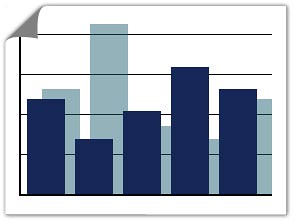The highlight of the new budget balancing measures is the “Fair Fare Fees” (FFF) program, which the Board of Directors, at the recommendation of the WMATA staff, hopes to implement for the start of the next fiscal year. “After the introduction of the peak of the peak fare last year and the accusations from some members of the public that we were unfairly targeting rush hour riders with the burden of additional fees, it only seemed right that we create additional fees so that riders at all times of day can partake in as many parts of our fare structure as possible,” said Board Chair Catherine Hudgins. “The proposed FFF program will achieve that goal. Additionally, implementing FFF will create additional revenue for the agency without raising fares, and riders will now be able to selectively choose to only pay for the parts of the system that they use or cause to experience wear and tear. Finally, WMATA has always been at the forefront of innovations in the American public transit industry, and we will remain at the forefront of revolutionizing fare structures to meet the needs of our current economic conditions.”
The following are the proposed fees that would be implemented under phase one of the FFF initiative:
- Peak of the Off Peak: A 15 cent surcharge will be charged for all trips during the midday rush at lunchtime between 11 AM and 1:30 PM weekdays
- Peak of the Overnight: In order to maintain consistent branding for the entire “Peak of the…” program, the regular fare period after midnight on Fridays and Saturdays will be renamed to be the “Peak of the Overnight.”
- Peak of the Peak remains unchanged
- Elevators will be charged at a rate of 15 cents for the elevator from the street level to mezzanine level and at a rate of 10 cents for the elevator from the mezzanine level to the platform level. The elevators between platform levels at transfer stations will cost 10 cents to use. A Smartrip card will be required to call the elevator. Senior & Disabled Smartrip cards will not be charged this fee. Passengers with large amounts of luggage, baby carriages, and the like who wish to apply for a waiver may do so by presenting themselves to the station manager, either before or after elevator use occurs. The station manager has the sole authority to determine whether a waiver should be issued. If the waiver is granted, the passenger must fill out the form provided by the station manager and send it to the Smartrip Regional Service Center by mail. It will be recommended that passengers who expect to request waivers should allow an extra 30 minutes at both the entrance and exit locations of their journey to locate the station manager, in the event he or she is not in the kiosk, engaging in socializing with fellow coworkers, or otherwise not accounted for. Passengers who do not have Smartrip cards will not be able to call the elevators. Additionally, infrared technology will ensure that the number of people who board the elevator is equal to the number of people who called it through the use of their Smartrip cards.
- Air conditioning will only be available in the first, second, and fifth cars of 6 car trains, and in the first, second, seventh, and eighth cars of 8 car trains. A 20 cent rebate will be provided to passengers who ride in one of the cars without air conditioning, made available through Smartrip targets that will be installed in each car and activated in the appropriate cars. No refunds will be provided for riders who do not claim their rebate on board the train.
- Seats will cost 10 cents per use. Spikes will be installed on all seats; these spikes will only be lowered after a Smartrip card has been used to pay the fee. Senior & Disabled Smartrip cards will not be charged this fee. In the event someone with a Senior & Disabled Smartrip card needs a seat, when that Smartrip is touched to the target for the seat the rider wishes to use, if it is occupied, a spring will eject the passenger who is occupying the seat. For riders who voluntarily give up their seat in the judgement of the Senior or Disabled rider, a 5 cent refund will be given to the passenger who vacated the seat. For riders who involuntarily give up their seat, no refund will be given. Passengers who wish to have guaranteed access to the railfan seat may join the WMATA Railfan Seat Club for a monthly fee of $10, an annual fee of $105, or a lifetime fee of $4200. Passengers in the WMATA Railfan Seat Club will be able to eject non-club members from the railfan seats on each train in the same manner Senior and Disabled passengers will force regular riders out of seats they wish to use. Other perks may be provided to members of the WMATA Railfan Seat club at a later date, and club members will not have to pay the application fee for MOBOOP, which is outlined below.
- Due to the fact that all the fare charts on the farecard machines in each station will need to be printed in size 2 font in order to list all the new fees and possible fares for each station, souvenir WMATA magnifying glasses will be on sale at all stations for 5 cents. It will be recommended that riders save their magnifying glass for future use to avoid having to pay this fee more than once.
- Riders who are discovered to post negative things about WMATA to online social media, including but not limited to Facebook, Twitter, message boards such as DC Area Transit Zone and Subchat, or blogs such as Unsuck DC Metro and Greater Greater Washington, before, during, or after traveling on Metrorail, will be charged a libel fee. Libel fees will be a minimum of 10 dollars per offense, but major offenses or repeat offenders may be charged up to 100 dollars. Riders who post complimentary things to the same types of social media listed above may be eligible to win waivers that will exempt them from some or all elements of FFF for varying lengths of time, depending on the level of the praise. These charges and waivers will be issued under the sole discretion of the Media Relations Office.
- For those who do not wish to participate in our new security initiative, “Metro Opens Bags”, a one time fee of $362.73 can be paid to join the “Metro Opens Bags Opt Out Program” (MOBOOP). Passengers in MOBOOP will have to pass a background check before being allowed to participate, at which time they will be issued a special Smartrip card that will indicate to the Metro Transit Police officers and Transportation Security Administration agents that they are exempt from Metro Opens Bags. Passengers who fail to pass the background check will still be required to pay the fee to cover the administration of the background check and other logistics involved in processing the application to join the program, even though the application was not successful. Although this capability will not be added to Smartrip cards until the next generation card is developed and issued, the Board of Directors plans to approve MOBOOP as part of FFF. It should be noted that a 5 dollar fee will still be charged for the purchase of the next generation Smartrip card, in addition to the one time MOBOOP fee.
Once the public hearing schedule is set and the official docket is released, instructions on how to submit public comments on FFF will be made available through a press release. “We look forward to hearing what riders have to say about the exciting innovations that we plan to implement to the fare structure next fiscal year,” Hudgins said following the meeting. If phase one of FFF is deemed successful, phase two would expand FFF to include Metrobus and Metroaccess, in addition to other aspects of Metrorail that are not included in phase one. The full Board of Directors will take a vote at its next meeting on whether to approve the recommendation of the Finance and Administration Committee.
Via: http://forums.dctransit.info/index.php?topic=1908.msg18334#msg18334 (h/t @perkinsms aka @smartpasses)









 Oct. 11, 2012
Oct. 11, 2012 February 21, 2012
February 21, 2012 March 4, 2010
March 4, 2010




